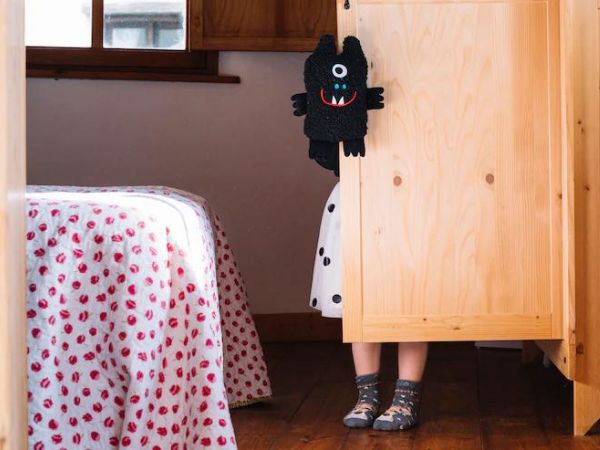Just In
- 20 min ago

- 4 hrs ago

- 5 hrs ago

- 8 hrs ago

Don't Miss
- Technology
 Xiaomi Robot Vacuum Cleaner S10, Handheld Garment Steamer, and Redmi Buds 5A Launched in India
Xiaomi Robot Vacuum Cleaner S10, Handheld Garment Steamer, and Redmi Buds 5A Launched in India - Movies
 10 Times Yesteryear Diva Zeenat Aman Set Major Fashion Goals With Her Timeless Grace And Age-defying Style
10 Times Yesteryear Diva Zeenat Aman Set Major Fashion Goals With Her Timeless Grace And Age-defying Style - Sports
 Boria Majumdar: 'He Lied Through His Teeth'; Deserves Apology From Cricketer For Social Media Abuse
Boria Majumdar: 'He Lied Through His Teeth'; Deserves Apology From Cricketer For Social Media Abuse - News
 Lok Sabha Elections 2024: What Are The Expectations Of First-Time Voters?
Lok Sabha Elections 2024: What Are The Expectations Of First-Time Voters? - Automobiles
 Nissan Magnite Achieves 1 Lakh Unit Sales Milestone: Consistency Helps
Nissan Magnite Achieves 1 Lakh Unit Sales Milestone: Consistency Helps - Education
 West Bengal Madhyamik Result 2024: Check How to Download 10th Marksheet on wbresults.nic.in
West Bengal Madhyamik Result 2024: Check How to Download 10th Marksheet on wbresults.nic.in - Finance
 Sakuma Exports Secures Rs. 150 Cr Deal; Okays Rights Issue Amidst Positive Outlook
Sakuma Exports Secures Rs. 150 Cr Deal; Okays Rights Issue Amidst Positive Outlook - Travel
Kurnool's Hidden Gems: A Guide To Exploring India's Lesser-Known Treasures
Parenting Tips: What Causes Nightmares In Kids? How Parents Can Help?
Almost every child experiences frightening or upsetting dreams from time to time. If your child experiences one, as a parent, please reassure your child and provide some comfort. A child's nightmares seem to peak during the preschool years when they are more likely to be triggered by fear of the dark [1].

Parents' Guide to Nightmares in Children
Even though nightmares cannot be completely avoided, parents can help their children sleep peacefully at night. A child's nightmares may result in paranoid behaviour if parents fail to pay attention. Once a child awakens screaming because of a nightmare, he or she may find it difficult to return to sleep.
As a parent, you should explain to your children that a dream is not a reality. Some children will even describe their dreams, and some will not be able to recall them [2].
What Causes Nightmares In Children?
There is no clear understanding of what causes nightmares in kids. Dreams - and nightmares - may be a way for kids to process thoughts and feelings about the situations they are facing, and resolve concerns and worries [3].
These are some of the possible causes of nightmares in children:
- Trauma
- Anxiety
- Change of Place
- It is not uncommon for some kids, especially those with a good imagination, to experience nightmares as a result of reading scary books or watching scary movies or television shows just before bedtime.
Well, how do you stop a child's nightmares? If you are unable to comfort your child and he or she experiences nightmares every night, you should take your child to a child psychiatrist for a diagnosis.

How To Help A Child With Nightmares
1. Establish a healthy bedtime routine
There is no way to prevent nightmares, but parents can help kids get a good night's sleep - and that encourages sweet dreams. To make sure that kids are ready for sleep when it's time, following these [4]:
- Establish regular bedtimes and waking times
- In order to help your children sleep, develop a routine that allows them to slow down and feel secure. This might involve a bath, a cuddle from you, a book, or some quiet conversation about the pleasant events of the day.
- It is important to have a bed that is a comfortable and peaceful place to rest. A favourite toy, stuffed animal, night-light can make your kid's room feel more calm.
- Do not watch scary movies, TV shows, or stories before bedtime, especially if they have previously caused nightmares
- Be aware that nightmares are not real, that they are just dreams and cannot hurt you
2. Use mood lighting
Night lights and hall lights can be useful for kids in a darkened room when they are getting ready to go back to sleep. A flash light by their bedside can be excellent for chasing nightmares.
3. Listen attentively
If your child has a nightmare, do not discuss it more than briefly - help him feel safe, protected, and prepared to sleep again. But in the morning, he or she might want to tell you all about it. When you talk about the dream - or even draw it - in daylight, many scary images lose their power. Think up a more satisfying ending for the scary dream with your child [5].
4. Brain-train your child
After a nightmare or at bedtime, they should think about something happy and fun. They can imagine that he's changing the channel away from his scary thoughts. Also, you can help them distinguish fantasy from reality and approach the issue logically [6].

On A Final Note...
You may benefit from cognitive behavioural therapy if none of the above approaches fail after a few weeks, or if your child's nightmares seem to be interfering with their normal daily activities.
-
 pregnancy parentingWhat Are The 4 Must Have Vitamins For Kids With Diabetes?
pregnancy parentingWhat Are The 4 Must Have Vitamins For Kids With Diabetes? -
 pregnancy parentingStates On High Alert As China Grapples With Respiratory Infections: Symptoms, Do’s And Don’ts
pregnancy parentingStates On High Alert As China Grapples With Respiratory Infections: Symptoms, Do’s And Don’ts -
 healthBust Bloating: 5 Exercises Every Teenage Girl Needs For A Happy Tummy
healthBust Bloating: 5 Exercises Every Teenage Girl Needs For A Happy Tummy -
 pregnancy parentingIncreasing Reports Of STIs In Children: Tips for Parents on Educating Kids about STI Prevention
pregnancy parentingIncreasing Reports Of STIs In Children: Tips for Parents on Educating Kids about STI Prevention -
 pregnancy parentingAre You The Second Favourite Parent To Your Kid? Signs To Watch Out For
pregnancy parentingAre You The Second Favourite Parent To Your Kid? Signs To Watch Out For -
 pregnancy parentingWorld Toilet Day: 5 Ways To Teach Healthy Bathroom Habits In Kids
pregnancy parentingWorld Toilet Day: 5 Ways To Teach Healthy Bathroom Habits In Kids -
 healthAre You Really “Super Smart,” But Just Don’t Know It Yet? 4 Signs You Have A High IQ
healthAre You Really “Super Smart,” But Just Don’t Know It Yet? 4 Signs You Have A High IQ -
 pregnancy parentingTwo Wombs, Four Hearts: US Mom's Extraordinary Double Uterus Pregnancy
pregnancy parentingTwo Wombs, Four Hearts: US Mom's Extraordinary Double Uterus Pregnancy -
 pregnancy parentingChildren's Day 2023: A Glimpse Into Education Abroad: Perspectives From Indian Parents In Canada, Australia..
pregnancy parentingChildren's Day 2023: A Glimpse Into Education Abroad: Perspectives From Indian Parents In Canada, Australia.. -
 pregnancy parentingWhat Are The Mandatory Vaccines For Children In India?
pregnancy parentingWhat Are The Mandatory Vaccines For Children In India? -
 pregnancy parentingWorld Pneumonia Day: Risk Factors Of Pneumonia In Children
pregnancy parentingWorld Pneumonia Day: Risk Factors Of Pneumonia In Children -
 pregnancy parentingChildren’s Day: 5 Books You Can Introduce To Kids Above 10 Yrs
pregnancy parentingChildren’s Day: 5 Books You Can Introduce To Kids Above 10 Yrs


 Click it and Unblock the Notifications
Click it and Unblock the Notifications



